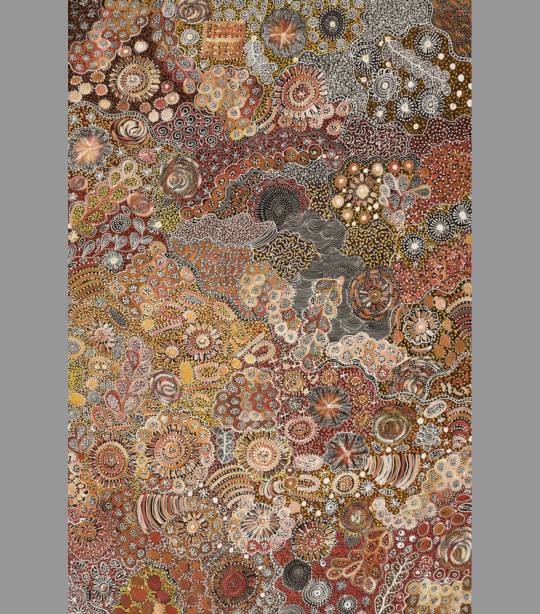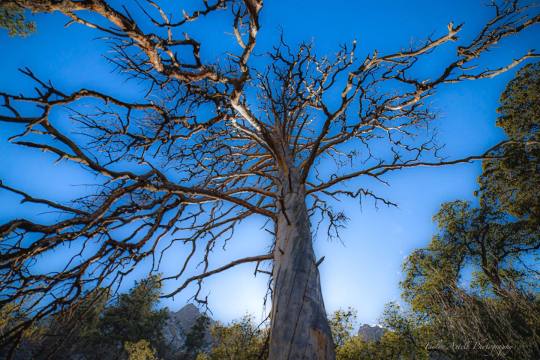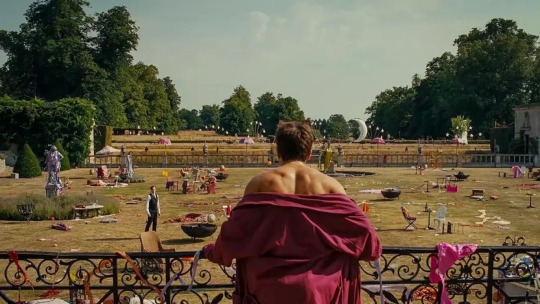#Tyson yunkaporta
Text

Weekend reading
#books#the Parisian#isabella hammad#sand talk#Tyson yunkaporta#things you may find hidden in my ear#mosab abu toha#read Palestine#read indigenous
223 notes
·
View notes
Text

Janet Golder Kngwarreye b.1973
Australian First Nations (Anmatyerre) Artist
"Women's Dreaming"
Acrylic on canvas
200 x 130 cm
* * * *
“An Indigenous person is a member of a community retaining memories of life lived sustainably on a land base, as part of that land base.”
― Tyson Yunkaporta, Sand Talk: How Indigenous Thinking Can Save the World
#women's dreaming#Janet Golder Kngwarreye#about art#aboriginal art#Tyson Yunkaporta#Sand Talk: How Indigenous Thinking Can Save the World#quotes
47 notes
·
View notes
Text
"We don't have a word for "trauma" or "suffering" in our languages. We don't have those concepts. Those are things we've learned from missionaries in the last couple of centuries. We don't have that. There's no victim and evil-doer. Justice is what you do communally, and there are rituals around this. But we also have quite a middle class now, in the arts and in the academy. And there's a lot of "trauma-informed" practice going on there. And I get that too. Because we have historical IOUs. And it's hard not to clutch those as you walk into every conversation.
We've spent the last 30 years trying to learn and acquire the master's tools to dismantle the master's house. And now we've arrived at the master's house and he doesn't live there anymore. He's in Estonia building smart cities now. He's not in the master's house anymore. His nephew's in the house, and he's an "ally." And he has a belly button ring and yoga abs, and dreadlocks. He keeps a shaman in the living room, and invites you to come in and have an ayahuasca ceremony with him. And you feel bad, standing on the porch with all your tools. You come to smash the place up, you know?"
-Tyson Yunkaporta
26 notes
·
View notes
Quote
A city is a community on the arrow of time, an upward-trending arrow demanding perpetual growth. Growth is the engine of the city—if the increase stops, the city falls. Because of this, the local resources are used up quickly and the lands around the city die. The biota is stripped, then the topsoil goes, then the water. It is no accident that the ruins of the world’s oldest civilisations are mostly in deserts now. It wasn’t desert before that. A city tells itself it is a closed system that must decay in order for time to run straight, while simultaneously demanding eternal growth. This means it must outsource its decay for as long as possible. For this reason, a city is dependent on the importation of resources from interconnected systems beyond its borders. The city places itself at the centre of these systems and strips them to feed its growth, disrupting cycles of time and land and weather and water and ecological exchange between the systems. The exchange is now only going one way. Matter and energy are still neither created nor destroyed in this reaction; they are directed into static heaps rather than cycled back through and between systems. The exponential destruction caused by cities feeds the exponential growth of infrastructure and population. For this they misapply laws like supply and demand: in order for economic growth to occur, there must be more demand than supply. Roughly translated, that means there must be more people needing basic goods and services than there are goods and services to meet their needs. Put another way, there must be a lot of people missing out on what they need to survive in order for the economy to grow, or in order for anything to have value. As the growth continues exponentially, so do the masses of people missing out. There is no equilibrium to be found here.
Tyson Yunkaporta - Sand Talk: How Indigenous Thinking Can Save the World
19 notes
·
View notes
Text
youtube
"We've spent the last 30 years, y'know, trying to learn and acquire the masters tools to dismantle the masters house. And now we've arrived at the master's house and he doesn't live there anymore. Y'know, he's in Estonia building smart cities now."
0 notes
Text
Move with the land or the land moves you.
-Tyson Yunkaporta, Sand Talk
0 notes
Text
“We experience time in a very different way from people immersed in flat schedules and storyless surfaces. In our spheres of existence, time does not go in a straight line, and it is as tangible as the ground we stand on.”
— Tyson Yunkaporta
0 notes
Text
Tag Game
Tagged by @thesweetnessofspring
Thank you for the tag!
Favourite painter: I actually do have a few there's, of course, Van Gogh -- mostly because I watched many documentaries on his life, and he is depicted as someone truly kind. There's also John William Waterhouse for Circe, as well as all his maiden and knight paintings. Davinci for being unhinged. And, I am ashamed to add, Jean-leon Gerome because his paintings promoted orientalism, which is bad, of course, but I also very much love the colors and the way he painted veils and skin.
Favorite writer: oh, this is impossible because it changes constantly. Right now, I would say Katherine Arden, Suzanne Collins (obviously), Tyson Yunkaporta, and S.A. Chakraborty. Each one of these authors has written one or more books that I've truly loved.
Favourite band: Hm. I actually don't know. I used to listen to specific bands more often, but now I listen to music song-by-song. I think the artist that I listen to the most is Natalia Lafourcade and Los Macorinos. They're not technically a band, Natalia does a lot of solo work, but I love them together.
Favourite meal and drink: OHOHO, okay, this one is easy. I could crush my spicy chicken with potatoes and rice any day. I make it with those canned chipotle peppers and lots of sour cream its soooo good. My favorite drink would probably be either earl grey, matcha, or just mango-guava juice. Let's go for mango-guava 😋
oh! and if you wanna eat something else that's amazing try steak in jalapeño cream. OMG it's the best but it's only good if you go to Latin America and eat it there haha. I have my hands to cook it tho😆
Favourite outfit aesthetic: This one is an extremely specific answer. It's probably best described as seductive vampire meets office-inspired-but-not-appropriate meets early 2000's cooky love interest. Do you know what I mean?
Favourite singer: I can't say Natalia sooo other singers that I love are Mon Laferte and Shakira.
Favourite item I own: I really like my bike rn. It came in from the Netherlands even tho I bought it at a local shop that told me they just had to 'ship in' the one in the color I wanted from a nearby location. Turns out the nearby location was fucking Europe.
Favourite perfume: I have 2 perfumes that I actually wear but my fave is by Bvlgari and its au the blanc a.k.a. white tea.
Favourite possession: does this mean like valuable item? Hm... idk. I don't really own valuables. Oh! I have this miniature replica of a Bernini sculpture, the Rape of Prosepina. I got it off amazon if you can believe it! Someday I want to see it in person. Here's a picture:

tagging:@mollywog @triassictriserratops @tetheredfeathers @everdares @loungemermaid @endlessnightlock @thesmileykate @wistfulweaverwoman and everyone else who would like to join!!
3 notes
·
View notes
Text
... traditional ecological knowledge only allows you to scale within the limits of your relational obligations ...
" Deep time diligence is sort of looking at all the systems and the trajectories of these things and doing catastrophic risk analysis, doing all these kinds of things, doing these things collectively. So as a group, everybody’s out there observing what’s happening in nature and what’s happening in your economic systems and communities, and we keep coming together and everybody’s bringing a different data set, and some of these overlap, some of them are contradictory. But in the aggregate, we get a sense, together, with that one big brain—the computational power of a group of people together, you know, big community together doing all this work—that, that works. That’s deep time diligence, because you start building the stories that you need and the Lore that you need and the knowledge that you need for the system as it’s shifting.
And you make sure that you’re moving where it’s going to be, where the authority is going to be, where the livability is going to be, and how it’s going to be. You’re constantly shifting towards that while you’re testing the water, testing the water, testing the water, the whole time, just ahead of you. Like when you’ve got a stick in a stream, and you’ve got that stick ahead of you, and you��re testing the depth— "
“... the key to keeping track of stable innovation processes across multiple generations is story ... it can be more creative than a Cambrian explosion, or more destructive than a nuclear explosion. Story that maintains the continuity of creation requires a lot more work, however, and it develops over time from thousands of data sets held in relationships.”
...
" ... the only way to store data long term, like proper long term, is in intergenerational relationships, where data is stored in narratives, intergenerational narratives. That can last for forty, fifty, sixty thousand years. That can last as long as relations are continued—that data will last. It’s the only safe way to store data in the long term."
...
"Your ignorance is only from the fact that you have a valid data set, but it’s only from one standpoint. But you get all the multiple standpoints and you start to form a picture. You’ve got all these different data points coming back in and it’s computed, like you’ve got dark data processing happening at this big collective level with the best computation mechanism ever—’cause the human brain’s pretty good, but you get like twenty, thirty, a hundred and fifty of those brains together, sharing stories, sharing data sets, and then all of these things just kind of moving and shaping together, something emerges: principles, lores, story, narrative binding all these together. That’s why myth works so well. That’s why myth is so evocative and so enduring; it’s because all these diverse ignorances come together and truth emerges from that ... That’s the only way it can be done."
...
"Wrong story is where instead of all these diverse ignorances coming together to make truth and reality, instead of that, it’s like a small cluster of those ignorances, or just one tiny data point of that ignorance decides: I am truth. I am right. And I’m gonna insist that just this point of view is the right one. And I’m gonna recruit as many people as possible. And together we’re gonna create a compelling narrative, usually a spiritual narrative, straightaway, you know? We’re just gonna draw on mythological tropes from right story everywhere. We’re gonna draw on even proper facts. And you can fact check this—every fact’s gonna be true. But we’re gonna selectively pick those facts and make them fit this narrative. And then we’re gonna project it and we’re gonna insist on it and we’re gonna die on that hill and we’re gonna insist that everybody follow this narrative to the death. And that’s what we’re up against. That’s your wrong story. It’s really powerful because it’s incredibly ignorant, and it’s a way that a minority can subvert and control a majority. It’s a brilliant leverage point. It’s a brilliant psychotechnology. It’s probably the most brilliant invention ever made: the wrong story. Because story is so powerful: story can heal, story can kill. Right story is clunky and it takes time—because it’s supposedto take time."
“[C]ultural knowledge of a region is not just contained in the tribe’s living memory and the sentient landscape, but is also in an enormous continental permanent ledger, in which each place keeps the Lore of other places,”
"[Indigenous governance] ... that’s that big governance model of all this sort of nested, fractal relations and connections of authority. They scale up from every pair, to every pair of individuals, to every pair of clan groups, and then to every four clan groups, then pairing off against each other: and that’s a tribe. And then every pair of tribes coming together and forming a region, and then every pair of regions—and so it keeps fractally scaling up, you know? So that’s our governance model there. And that’s kind of beautiful, and within that there’s Law, L-A-W, and there’s L-O-R-E. And Law is almost like a physical substance in the land. It’s a permanent ledger where the Laws are. They are inalienable, and, well, they last as long as landforms last. So they’re not permanent, but they last for a pretty damn long time."
“This system makes our cultures anti-fragile and acts as a kind of insurance against disasters—the Lore and therefore the Law of any culture can always be restored.”
"Because there’s volcanoes and shit changes, you know? There’s earthquakes, there are rising sea level events that happen, and there are tsunamis—like shit happens. Sometimes there’s a red tide. So, you know, everyone’s eating fish for a couple of weeks out of the sea and they don’t know that they’ve all consumed a poison that’s gonna kill every single person in the whole tribe, you know? Shit like this happens. So you make sure that your Lore is actually kept with other tribes. So there’ll be a few people in another tribe who carry all of your Lore and language and everything else, so if your people get wiped out, that can be repopulated from the other tribe, and that Lore that’s necessary for caring for that landscape and that bioregion—that’s carried on there. So that’s that anti-fragile permanent ledger human network that goes on."
The entire interview is just freaking amazing. I am going to be thinking about this and going back to It again and again, and reaching out with that stick in muddy waters to look for the paths to connect it.
"Like your individual viewpoint—that’s not a reality, that’s a truth for you. And if you’re doing it right, then you’re constantly changing that truth and amending it according to your interactions with others and other truths. Because that truth—that’s your epistemology, and your epistemology is supposed to be a method of inquiry where you’re constantly changing and updating your worldview according to the other data sets that you’re coming across with other people’s story. So that’s your truth, and that has to be constantly changing.
But then your ontology—that’s your reality, and that’s different. Because the reality is empirical and it’s collectively discerned. You need many people to help you discern that and you discern that together. That’s what’s real."
And
"I guess the only reason we’re having these conversations, the only reason we’re writing these books, is because we are hoping that there’s a possibility of a soft landing, where billions won’t have to die in horrible ways, where children won’t be harmed, won’t starve, won’t burn. We’re all hoping for this, and it’s probably wrong story because it’s probably not possible. The probability is that, you know, the systems change is and will continue to unfold in ways that are fairly catastrophic. Most of the people in the world right now are really feeling it, and are really in Armageddon, and in incredible suffering and upheaval and fear and death and all the rest. That’s most of the people in the world. You and I don’t notice it, because we’re living in these first world countries. It’s like, most of the world’s already burning, man. We’re past the tipping point. Probably need to start putting together the cautionary tales that are gonna carry everyone forward into the future and make sure this shit doesn’t happen again. With whatever stable system emerges from this, it probably won’t emerge in nice ways."
#deep time diligence#relational obligations#collective knowledge#aggregate sense#Lore#traditional ecological knowledge#intergenerational narratives#long post#podcast#transcript
0 notes
Text
0 notes
Text

The Guardian. This old tree has long since bit the dust. But on the Pine Tree Trail she’s a maker to all those who have been along the trail before. Tall and defiant she stands but I always wonder what she looked like full of leaves. Only the cowboys and natives know now. In the Organ Mountains-Desert Peaks National Monument Doña Ana Co, NM. Photo: Taylor Axtell (Aug 2023) :: [Robert Scott Horton]
* * * *
There is a pattern to the universe and everything in it, and there are knowledge systems and traditions that follow this pattern to maintain balance, to keep the temptations of narcissism in check. But recent traditions have emerged that break down creation systems like a virus, infecting complex patterns with artificial simplicity, exercising a civilizing control over what some see as chaos. The Sumerians started it. The Romans perfected it. The Anglosphere inherited it. The world is now mired in it. The war between good and evil is in reality an imposition of stupidity and simplicity over wisdom and complexity.
Sand Talk: How Indigenous Thinking Can Save the World by Tyson Yunkaporta[via alive on all channels]
#Sand Talk#Tyson Yunkaporta#alive on all channels#good and evil#trees#The Guardian#New mexico#Robert Scott Horton#Organ Mountains#Desert Peaks national Monument
19 notes
·
View notes
Text
End of Year Best of Lists for 2023

First year since I started tumblr I don’t have a top ten films. I have missed a lot, and expect the Holdovers, Past Lives, Poor Thing would’ve made the cut but I haven’t seen them yet.
Instead I’m just going to make a list of favourite first-time reads, views of 2023 (honestly, the year broke me of my usual list-making).
Books
Jane Roberts -Seth Speaks
Tyson Yunkaporta - Sand Talk: How Indigenous Thinking can Save the World
James Madden - Unidentified Flying Hyperobject: UFO’s, Philosophy, and the End of the World
Television
Succession
The Last of Us
Last Chance U (the basketball one, both seasons)
The Bear
Film
Leave the World Behind
Spider-Man: Across the Spider-verse
May December
Bottoms
No One Will Save You
Beau is Afraid
Saltburn
0 notes
Text
WONDER: Childhood and the Lifelong Love of Science

I'm currently listening to a podcast by 'Psychologists Off the Clock' entitled '251. Wonder with Frank Keil'. In this podcast they interview psychologist Frank Keil and explore the notion of wonder through Frank's book WONDER.
He explains that wonder is hunger to understand how the world works - Why & How questions. Children have a natural sense of wonder. Although they lose this sense of wonder over time - a decline in wonder. Why do we lose it?
50 years ago in a study in Britain by Barbra Tizard & Martin Hughes. They found that a decline in wonder happens across all social classes when children enter schools. Prior to school children ask many how and why questions, but once entering school they ask a lot less. This is a multitude of reasons... If you have 30 kids in a class you don't have time to deep dive into those discussions, there is a misconception that children's minds are concrete and aren't capable of those discussions and abstract concepts, confining children to strict schedules and discouraging spontaneity (spontaneity evokes wonder - wonder evokes spontaneity), the school's (and systems outside of the education system) just want facts and don't value the process in wonder... Teachers give out what they know and expect students to absorb - and the teachers are always expected to be the ones who know, instead of it being a collaborative pursuit in finding knowledge.
I could definitely relate to what was being discussed, I remember being so curious about so many things as a child, wanting to ask teachers questions about my environment, but feeling the pressure of having to always being right grow within me - thus shying away from asking those questions - losing a humility of not knowing.
In the podcast the talk about how Finland has reshaped their education system to be more play orientated - evoking more wonder.
The collaborative pursuit of knowledge reminds me of Indigenous Philosopher Tyson Yunkaporta's writing. He discusses post-truth and that why people are so caught up in always being right that they forget about the process of truth seeking; a hyper-individualised pursuit of knowledge. Western societies focus on the facts, rather than the process of co-creation and co-seeking that knowledge together. I can see how this would trickle down into education systems and thus affecting a child's sense of wonder.
They discuss lessons for parents to evoke wonder in their children, this is what they said:
Talk to them differently
don't ask close end questions - ask open ended questions:
don't ask: did you go to the zoo today?
ask : what did you do at the zoo today?
Make the questions an exploration, no yes/no answers.
Get excited about things you don't know, enjoy expedition of not knowing. If you don't know an answer, be curious with your child. Embrace this 'How/Why' in children.
There's an interconnection between humility, judgement, empathy, mindfulness, wonder, curiosity, learning, process.
0 notes
Text
"In Aboriginal Australia, our Elders tell us stories, ancient narratives to show us that if you don't move with the land, the land will move you."
This quote from Tyson Yunkaporta's Sand Talk communicates a harsh reality that human's connection to the land involves a sense of impermanence. For example, the 2023 Turkey-Syria earthquakes registering at 7.8 magnitudes have killed tens of thousands of people. The disaster has also caused mass devastation to buildings and infrastructure. So, the goal is to develop a fantastical structure that keeps humans' symbiotic relationship with the land as a core value.
Yunkaporta, T. (2019) "The Porcupine, the Paleo-mind and the Grand Design," in Sand Talk. How Indigenous Thinking Can Save the World. Melbourne, VIC: Text Publishing, pp. 3.
0 notes
Text
Processes of Emergence
Episode Description
Fritjof Capra in dialogue with fellows from the IK Systems Lab, Jack Manning Bancroft and Tyson Yunkaporta. Fritjof shares his accessible translation of a systems view of life – a four-part logic sequence that sits well in dynamic relation with Indigenous Knowledge. Creation is not just about patterns and replication, but the inevitable pattern-breakers that give rise to…
View On WordPress
0 notes